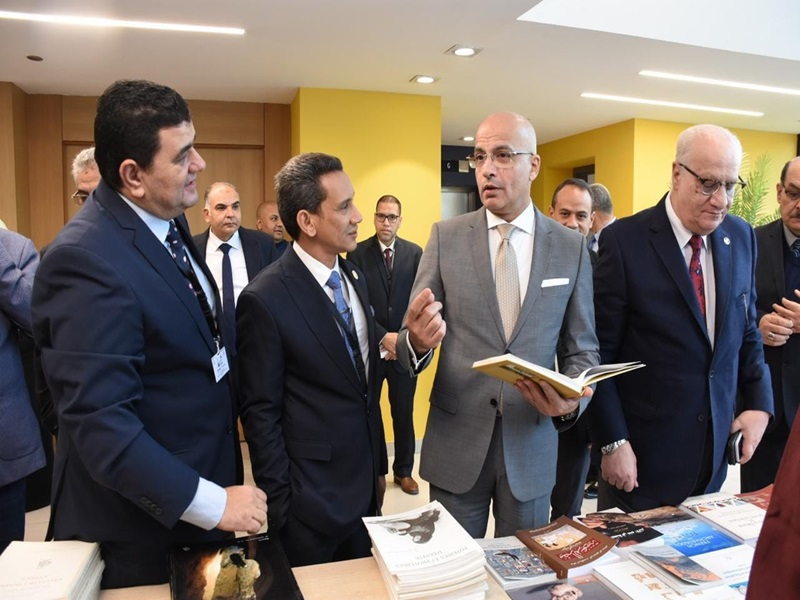"The President of Ain Shams University inaugurates the activities of the International Conference on Sustainable and Smart Museums: Strategies, Practices, and Challenges"
Prof. Mohamed Diaa Zain El-Abedeen, President of Ain Shams University, inaugurated the activities of the international conference titled "Sustainable and Smart Museums: Strategies, Practices, and Challenges," which is held in fruitful collaboration between the Faculty of Archaeology at Ain Shams University, the French Institute of Eastern Archaeology, and the Museum Sector of the Ministry of Tourism and Antiquities. The conference is taking place over two days, December 3-4, under the patronage of the Honorable Minister of Tourism and Antiquities, Mr. Sherif Fathy Ali, Prof. Mohamed Diaa Zain El-Abedeen, President of Ain Shams University, Prof. Ghada Farouk, Vice President of the University for Community Service and Environmental Development, chaired by Prof. Hossam Tantawy, Dean of the Faculty of Archaeology, and Prof. Pierre Tallet, Director of the French Institute in Cairo.
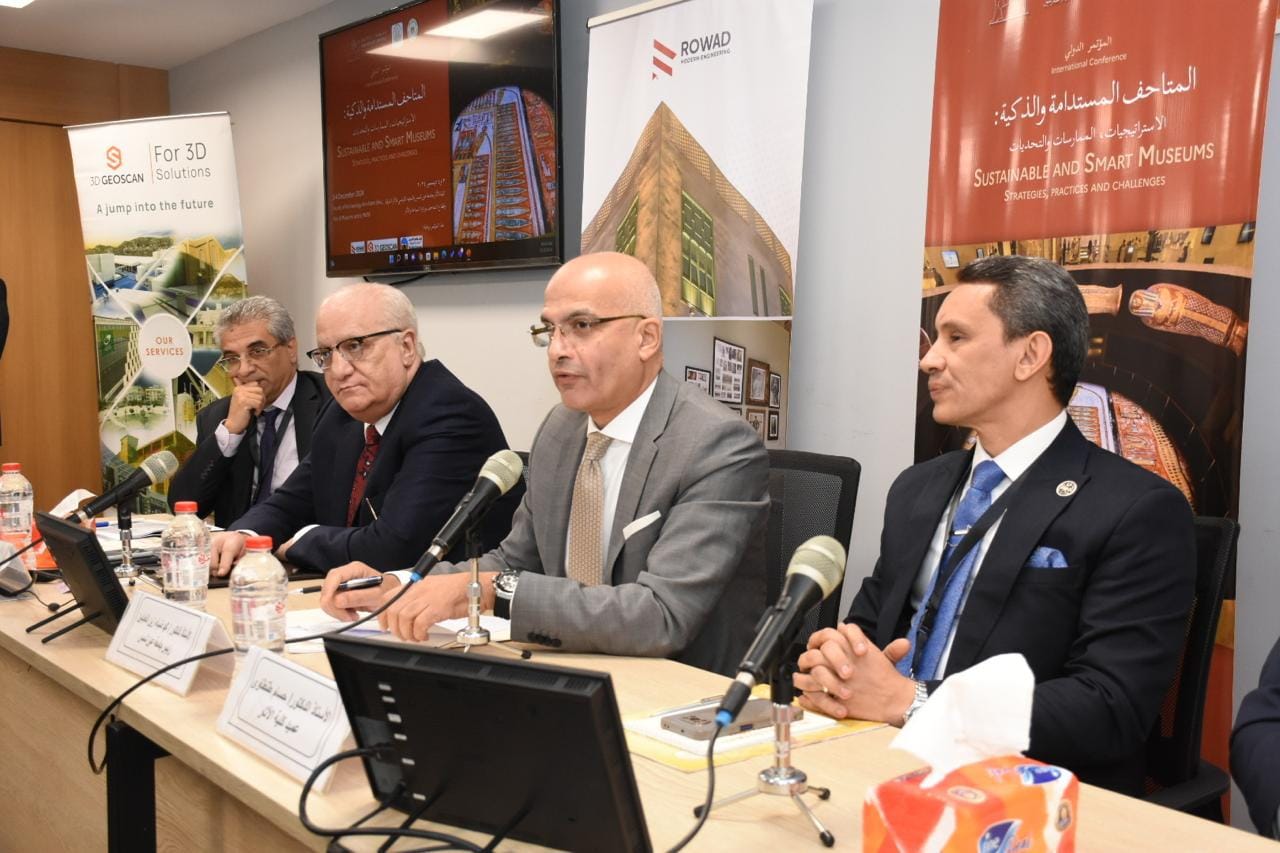 |
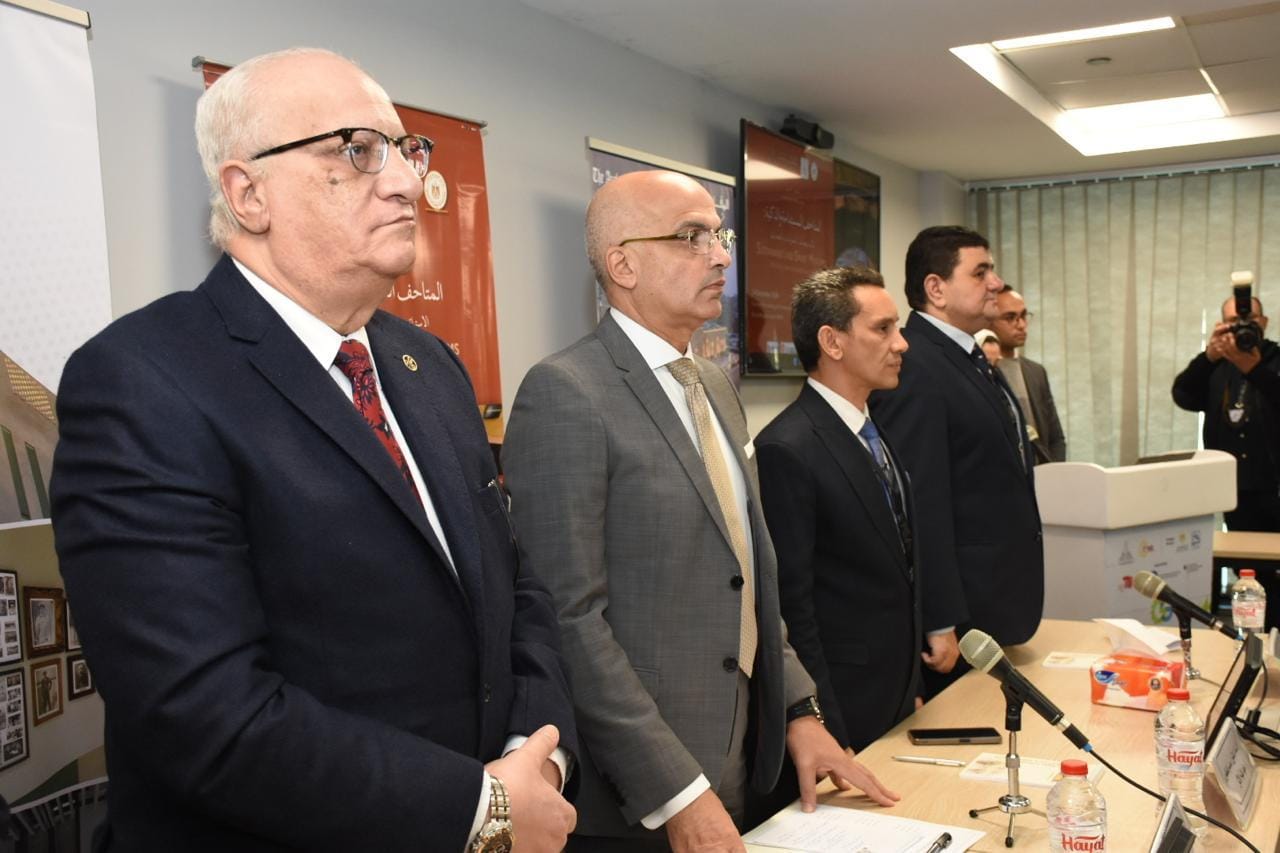 |
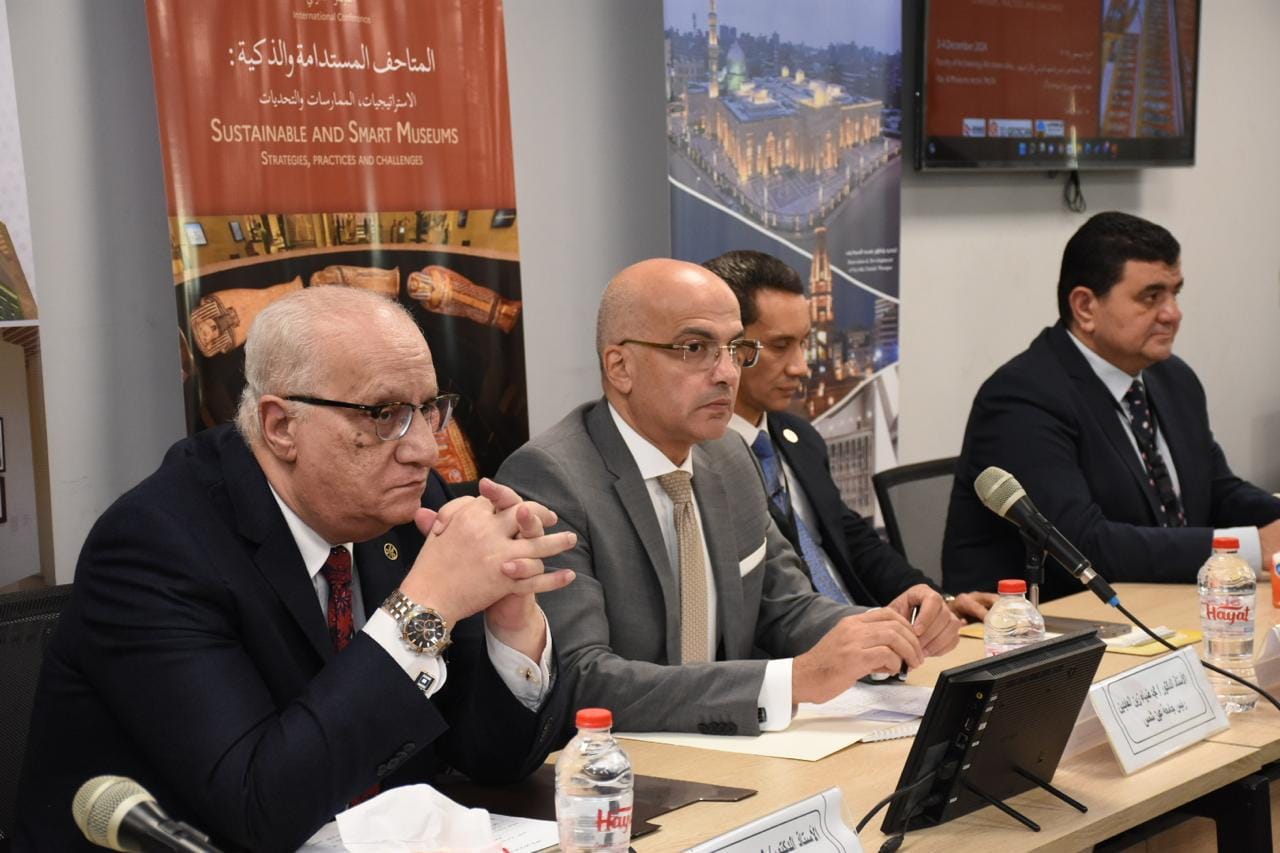 |
||
In his speech, Prof. Mohamed Diaa Zain El-Abedeen emphasized that museums are at the heart of Egypt's national interests, as the country gives utmost importance to cultural heritage, viewing it as one of the pillars of national identity and a major contributor to soft power. He stated that today’s museums, with their cultural and civilizational heritage, are no longer just places to display history but are dynamic institutions striving to balance heritage preservation with technological advancement. He highlighted the significance of the conference in exploring best practices, addressing challenges, and fostering cooperation to achieve an integrated vision for sustainable and smart museums.
The president thanked the Faculty of Archaeology, the French Institute of Eastern Archaeology, and the Museum Sector of the Ministry of Tourism and Antiquities for selecting this important topic and for the rich agenda of the conference, which reflects a deep vision that blends environmental sustainability, technological innovation, and economic factors, thereby addressing the challenges of the modern age. He also praised the collaboration among the organizing bodies and reaffirmed the university's commitment to activating partnerships.
Prof. Zain El-Abedeen further noted that the Faculty of Archaeology at Ain Shams University has made remarkable strides, earning a prominent place in a short period thanks to its distinguished programs and ambitious goals. He acknowledged the faculty's position as a scientific and research beacon, both locally and internationally, and expressed gratitude to the faculty members for their role in elevating the university’s reputation. He also mentioned that the university boasts a rich educational museum, the Al-Zafaran Museum, which is the first educational museum in Egyptian universities.
At the end of his speech, he expressed his hope that the conference would lead to innovative ideas and recommendations that would open new horizons for the future of museums, not only in Egypt but globally.
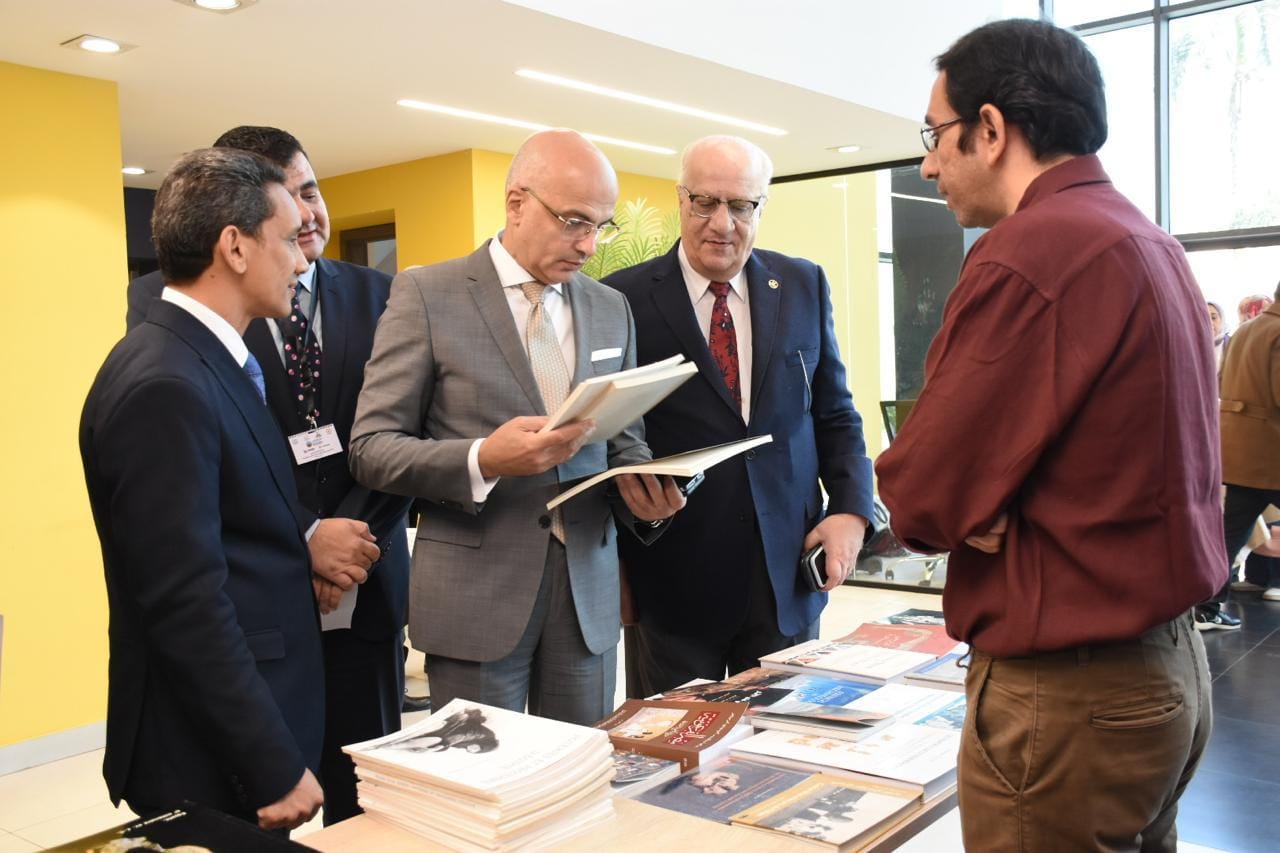 |
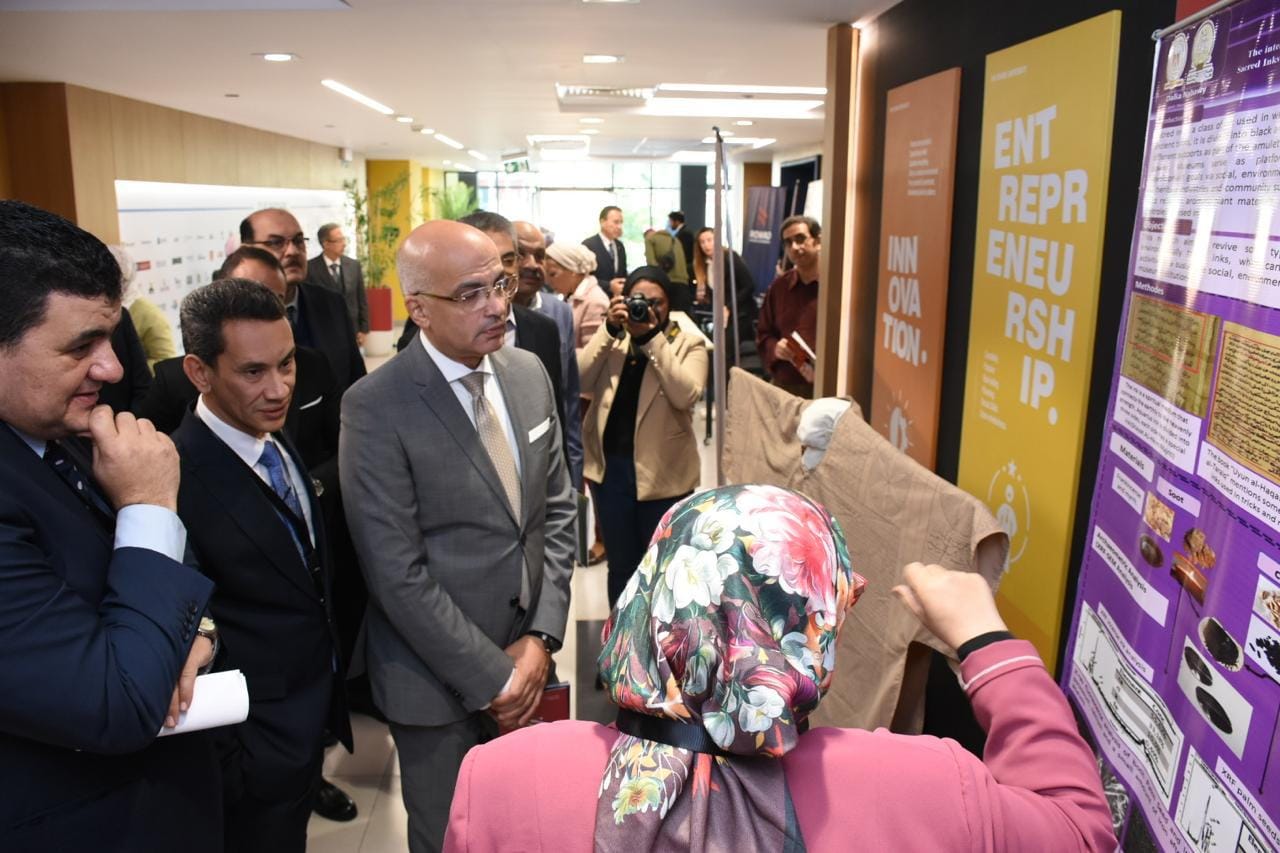 |
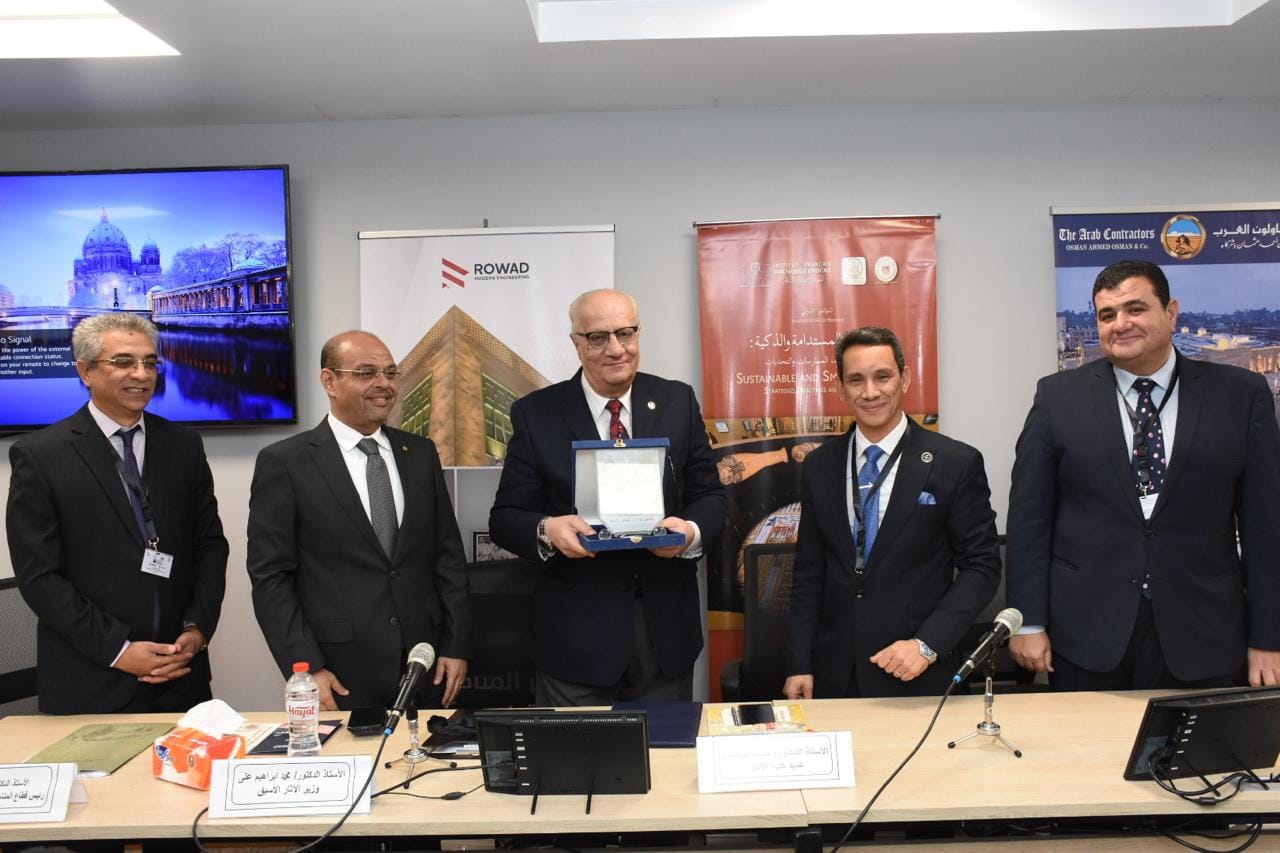 |
||
Former Minister of Antiquities, Prof. Mohamed Ibrahim, explained that the conference presents a genuine opportunity to build bridges of communication among stakeholders, emphasizing that the conference’s topic addresses key issues impacting the present and future. He expressed his anticipation that the conference would yield new insights and innovative solutions to propel progress and innovation.
Prof. Hossam Tantawy, Dean of the Faculty of Archaeology, stated that the conference, which marks the fourth year since the faculty's establishment, is a continuation of the annual conferences organized by the postgraduate sector. He noted that it is being held under special circumstances aligned with Ain Shams University's strong push toward becoming a fourth-generation university, which necessitates expanding local and international partnerships, as evidenced by the cooperation with the French Institute of Eastern Archaeology and the Ministry of Tourism and Antiquities.
He also highlighted the alignment of this event with the state's focus on interdisciplinary sciences, particularly archaeology and heritage studies, as a key to meeting labor market needs and achieving sustainable development goals under Egypt's Vision 2030. He explained that the conference's title reflects an understanding of the role of museums in addressing environmental challenges and the necessity of sustainability, promoting awareness of culture and heritage as vital components of sustainable development, and exploring the intersection of sustainability and technological innovation in the museum field.
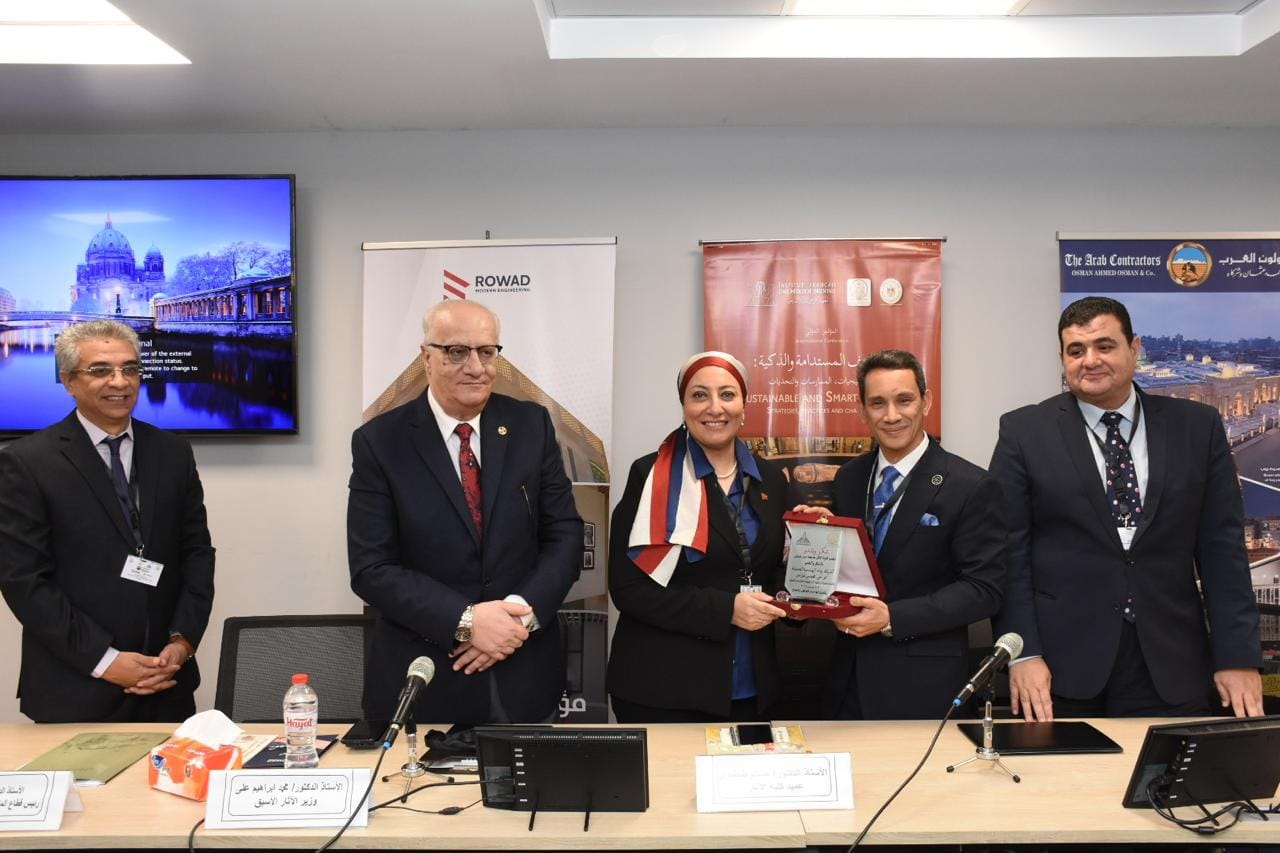 |
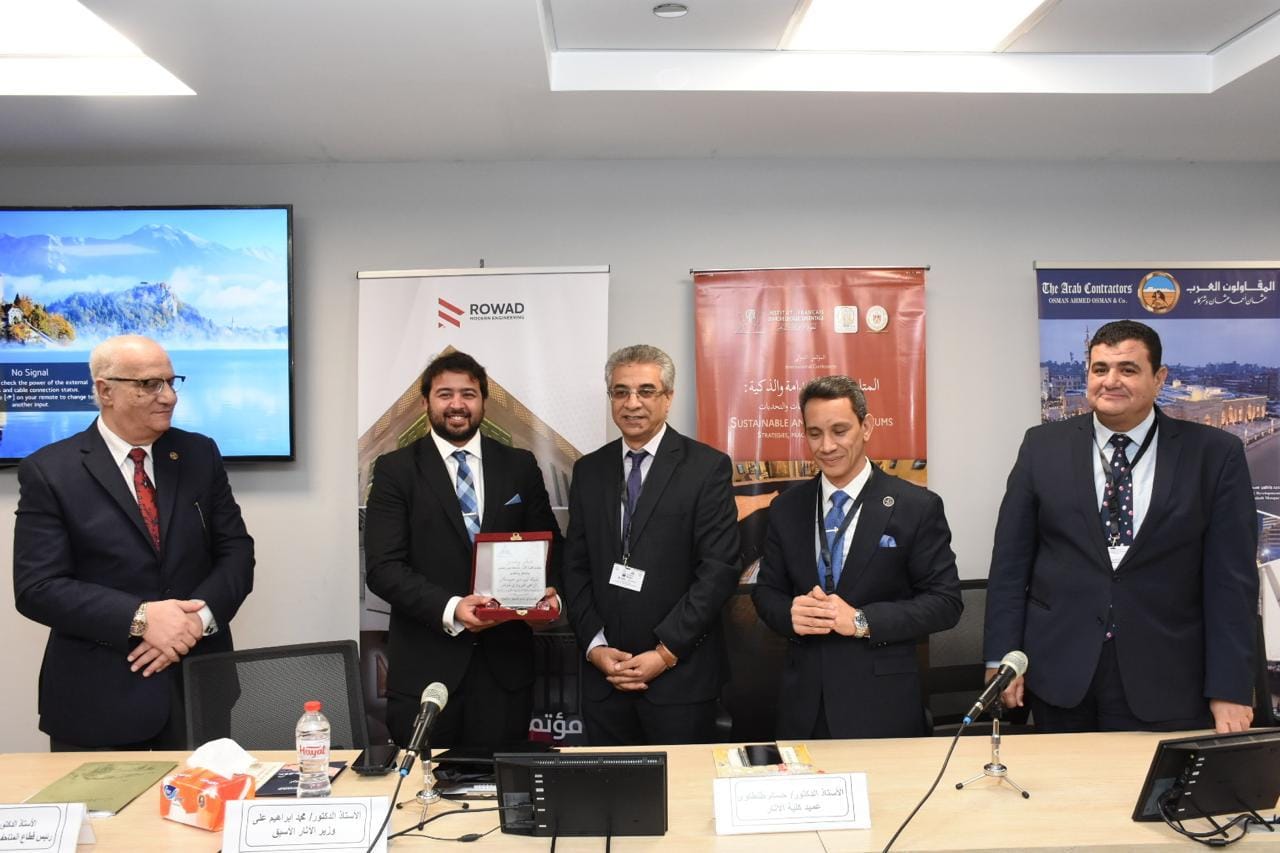 |
|
The conference consists of five sessions, in addition to the opening and closing sessions, with 28 speakers and researchers from diverse fields presenting 21 research papers and 3 posters. Professor Tantawy expressed gratitude to the conference's sponsors, organizers, and Prof. Pierre Tallet, Director of the French Institute of Eastern Archaeology in Cairo.
Mr. Moamen Osman, representative of the Minister of Tourism and Antiquities and Head of the Museum Sector, expressed his pleasure to attend the conference on behalf of the Minister of Tourism and Antiquities. He emphasized that museums are vital cultural institutions integral to Egypt’s history and future, playing a crucial role in achieving the Sustainable Development Goals 2030. He stressed the importance of activating collaboration between various institutions to address the impact of environmental challenges and climate change, using technological models and digital transformation to enhance the visitor experience in museums.
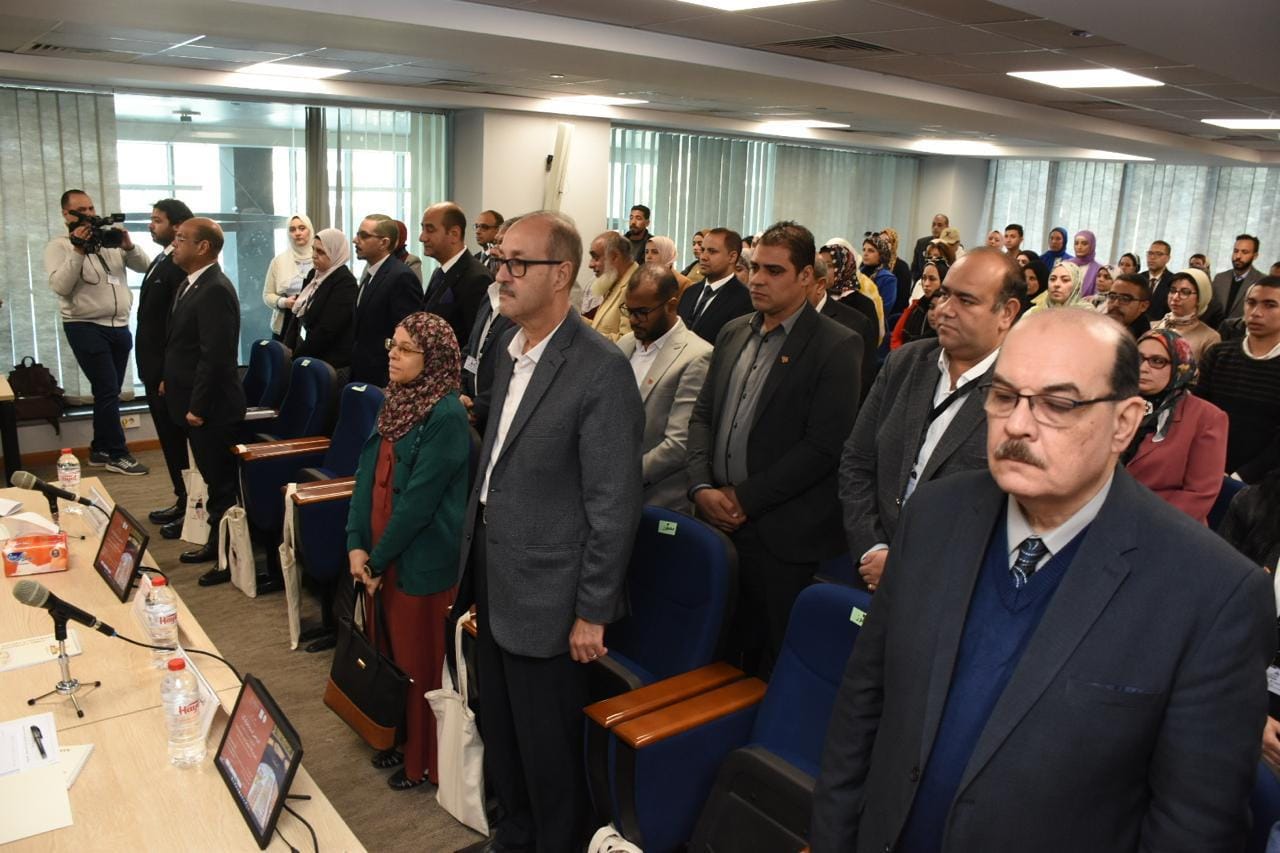 |
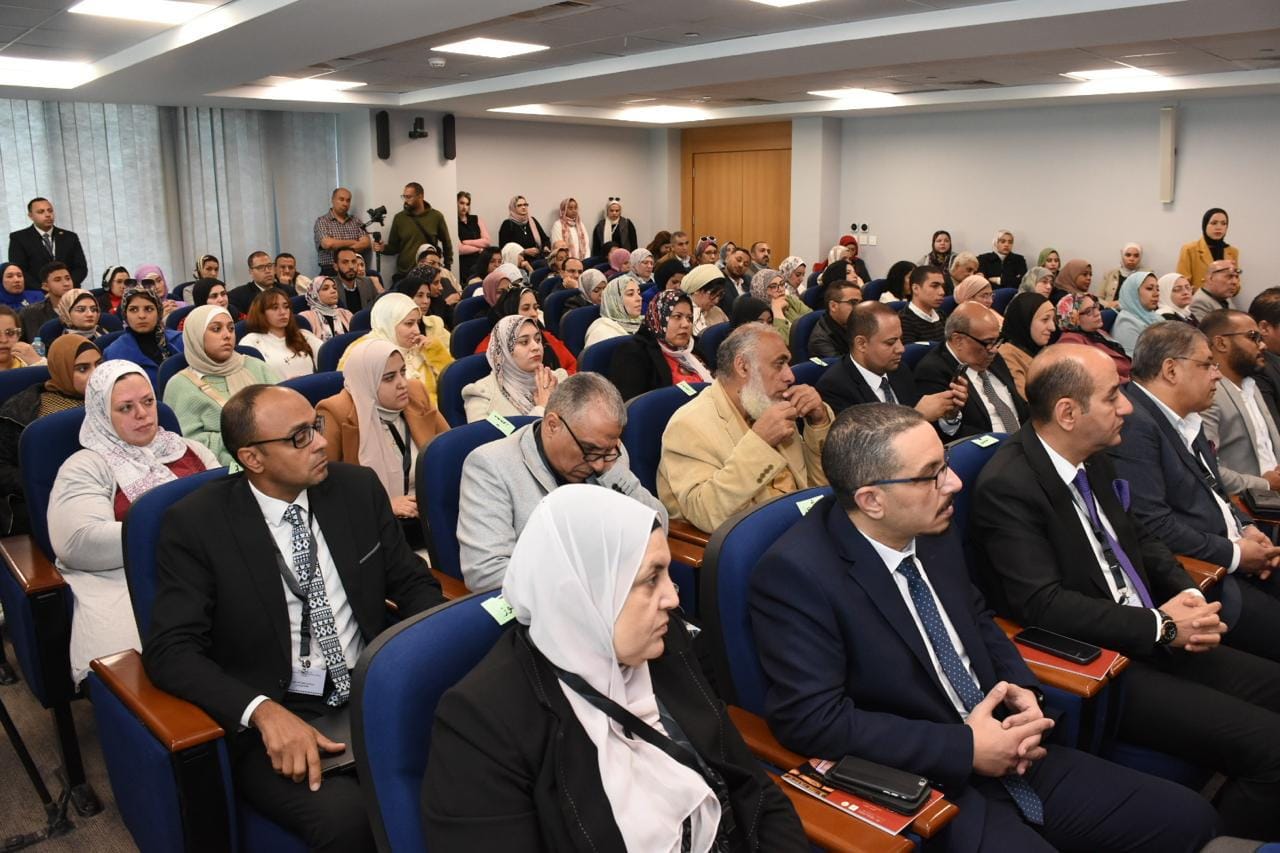 |
Finally, Prof. Ahmed Shawky, Vice Dean for Postgraduate Studies and Research and Conference Rapporteur, explained that museums are not merely places to preserve and display artifacts, but bridges connecting the past with the present and tools for cultural education. He noted that with rapid technological advancements, it is essential to reconsider the role of museums and utilize smart technologies to offer interactive and enriching experiences for visitors while ensuring sustainability and aligning with the goals of sustainable development. The conference, with over twenty presentations, offers a valuable opportunity to exchange ideas and experiences among researchers, practitioners, and experts, exploring innovative solutions to the challenges facing museums in the digital age.


.svg)

